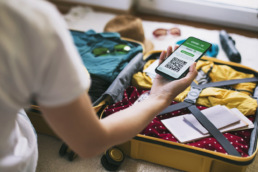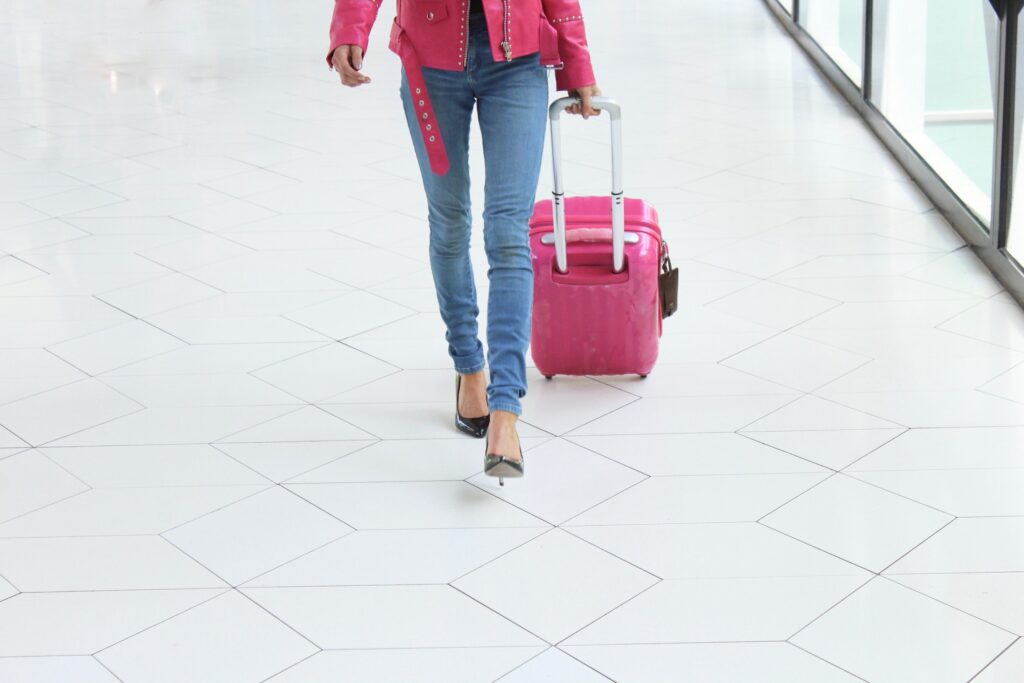Planning to leave for a new travel nurse contract is exciting—deciding what to pack is not. So, how can you anticipate what you’ll need for the next few months, pack as lightly as possible, and avoid spending extra money on basics when you get to your new location? Packing well is an art that shapes your particular needs and the things that are important to you. However, there are lessons we’ve learned along the way that can help you get your packing list under control. Here are six essential packing tips for travel Nurses and Allied Professionals to help you get ready.
Packing Tip #1. What to know before you go
Travel assignment benefits can vary, so find out what you’ll need ahead of time. If you’re using company-provided housing, confirm if household items are provided. Furnished accommodations often include basics such as cooking utensils, dish towels, bedding, and small appliances (i.e., hairdryer, iron)—but if yours doesn’t, you won’t want to wait until you arrive to find out. If you’re using the housing stipend to find your accommodation, you may need to bring some household supplies with you.
Hospital uniform requirements can vary, so ask for guidance around details such as scrub color and fabric type, if scrubs are not provided. It can also be helpful to ask about the hospital’s typical indoor temperature; you’ll want to make sure the scrubs you bring are warm and breathable enough to keep you comfortable.
Finally, research local weather trends for your entire assignment. Weather and temperatures can vary dramatically over a few months, and you may need to plan a wardrobe with layers so you can adapt.
Packing Tip #2. Prioritize any must-have personal items
Some personal items, like a toothbrush or shampoo, can typically be found regardless of your location. But, a quick replacement of specialty pieces is not always possible. Very personal items are one-of-a-kind, so be sure to pack anything that could be difficult (or even impossible) to replace.
These items may include:
- Nursing license and professional documents (although if you work through a service like Medely, you’ll have access to your credentials online)
- Driver’s license
- Passport
- Birth certificate
- COVID-19 vaccine documentation (or weekly negative COVID tests)
- Social security card
- Any prescription medications
It can be helpful to create digital copies of important documents so you’ll always have access, but sometimes the originals are necessary.
Packing Tip #3. Choose smart clothing items that are color coordinated and flexible
Packing clothes for 12+ weeks can feel daunting—until you realize that you’re going to spend much of your time in scrubs. So don’t feel too anxious about it!
Here are a few pro clothing packing tips:
- Coordinate the colors. This is essentially a small capsule wardrobe: A collection of a few outfits that can be reconfigured into a bunch of varying styles.
- Plan for comfort at work. Bring one or two pairs of comfortable work shoes and scrubs.
- Prep for the season ahead. It can be a challenge to plan your outfits so far in advance but keep your needs for the coming season in mind—whether you’ll need a swimsuit, a cozy sweater, or a pair of warm winter boots.
- Find multipurpose items. Look for articles that can be used in more than one way, like a scarf that can double as a wrap on a breezy day or convertible clothes designed to be worn in multiple styles.
Some seasoned travelers have little room for “just in case” items, but if you’re struggling to leave something behind, consider this: How hard or expensive will it be to buy a new one? Some items can be costly to replace, but others may be easy to find secondhand or as a rental.
Packing Tip #4. Keep things organized
Particularly if you’re taking shorter assignments and moving around more often, it can save time and effort if you keep your belongings organized with storage containers or packing cubes.
Consider organizing your stuff by needs, such as:
- Things you’ll need as soon as you arrive
- Work-related clothing
- Kitchen and household items
- Dress for later in the season
- Sports and exercise-related items
- Electronic devices and other tech-related essential items
This packing strategy can help you keep track of where things are and what you may or may not need to unpack right away.
Packing Tip #5. Leave some space for the comforts of home
A favorite of all of our packing tips is to ask yourself “Is there really room for things that will make my space more comfortable”? The reality is that, even with the best experiences and adventures, it can be tough to be on the move and away from the familiar constantly.
Consider bringing a few small items that can capture the spirit of home such as:
- Locally-made condiments, such as syrups, jams, or spices
- Scented items, such as soaps, candles, or essential oils
- Locally-produced textiles, such as pashminas, sweaters, or socks
If you have the space, some travelers like to bring favorite personal items like pillows. They’re bulky, but if it helps you get a better night’s sleep in a strange bed, it may be worth the tradeoff!
6. Personalize your packing list—and keep editing it
Ultimately, the things you bring with you on your next travel nurse assignment are a personal selection that will likely vary as you travel more, gain experience, and figure out what’s essential to you. What are the packing tips you can use for your next assignment?
Take stock between each travel nursing contract to reassess your packing list, then remove items you never use as well as anything you thought would be essential but isn’t.
Want to make sure you haven’t missed anything? Check out The Nomad’s Packing Guide for Travel Nurses for more suggestions.



